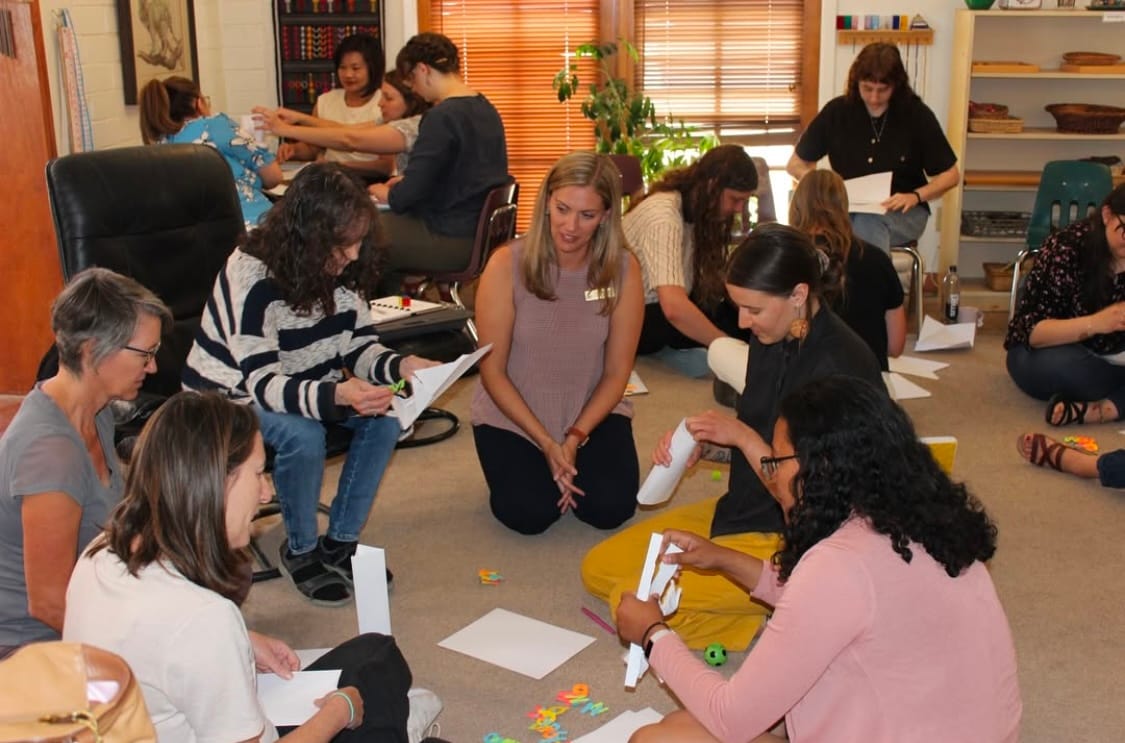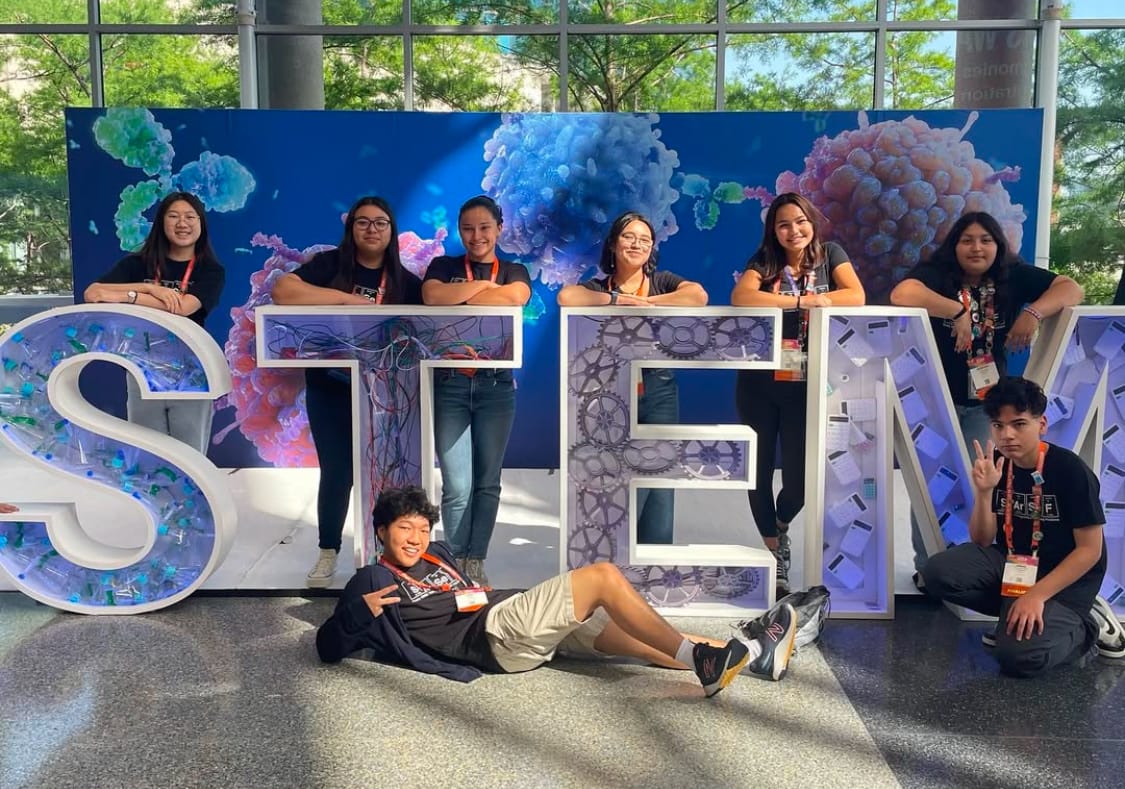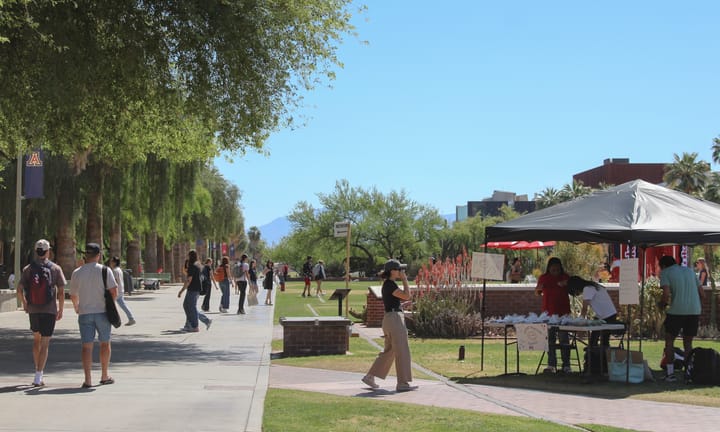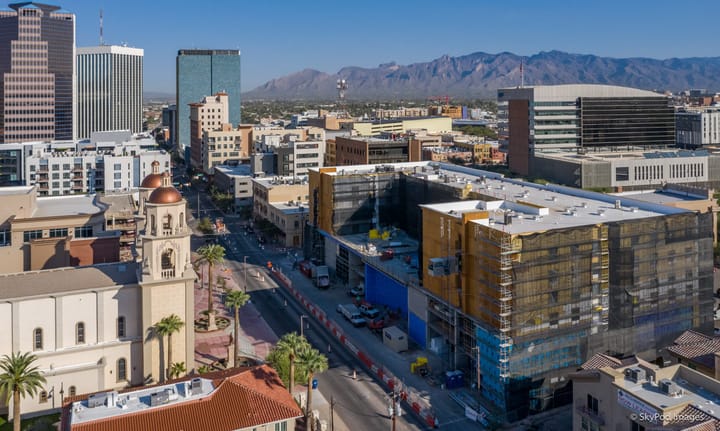How SARSEF supports schools in shaping Arizona’s future scientists
During the 2021-2022 school year, SARSEF worked with 160 schools and 27,815 students – 71% from underserved communities.

Tucson’s longtime science and engineering fair and the foundation behind it is helping empower teachers across the state to transform education and turn classrooms into spaces where science becomes a pathway to opportunity.
The Southern Arizona Research, Science and Engineering Foundation is celebrating its 70th year of sparking critical thinking in students. Through hands-on learning and mentorship, the foundation and fair helps educators from resource-limited border schools to urban hubs inspire curiosity and discovery in STEM-related projects.
During the 2021-2022 school year, SARSEF worked with 160 schools and 27,815 students – 71% from underserved communities – demonstrating the foundation’s far-reaching influence and highlighting its commitment to educational equity.
The program’s impact is evident in its results: Schools involved with SARSEF saw a 15% boost in state test scores.
And for many of the state’s rural schools, where resources are even more limited, SARSEF has been a game changer.
In the close-knit border town of Douglas, where students often navigate cultural and socioeconomic hurdles as first-generation Americans, SARSEF has helped build confidence and inspire students to dream beyond their immediate surroundings.
“For us, in a small border-town school with limited resources, SARSEF has opened the world for our students,” said Sharon Christie, a science teacher at Douglas’ CAS Charter School. “It’s given them critical thinking skills, the willingness to take risks, and the courage to consider pursuing higher education, which can feel very intimidating in our community.”

Christie recalled a student who had to redesign her science project midway through the process due to personal challenges. With guidance from her mentor, the student shifted her project to focus on how birds build nests in relation to foot traffic on small-town sidewalks. The experience required extensive data collection and observation, and helped to connect classroom concepts to real-world environmental issues like climate change.
“SARSEF has shown my students that they can succeed on a global stage, regardless of where they come from,” Christie said. “It’s sparked an interest in environmental protection and helped them see themselves as part of a bigger world.”
At Tucson’s Manzo Elementary, Principal Brenda N. Maytorena has witnessed SARSEF’s transformative impact on her students. She said she’s observed a significant advancement in students' critical thinking and problem-solving skills over the years.
Maytorena said SARSEF offers students the opportunity to engage in hands-on experiments and all five senses to truly understand how things work. She shared the story of a third-grader who began with a simple paper airplane project that ultimately won big at the science fair. Through trial and error, the student tested different materials, modified designs, and analyzed results.
“It was incredible to see his critical thinking evolve,” she said. “SARSEF encourages students to ask questions they care about and solve real problems born from their inquisitive minds.”
SARSEF’s influence extends beyond students, providing educators with resources and tools to enhance STEM education. Its interdisciplinary “What Do We Wonder” curriculum aligns with Arizona Science Standards and guides students through the scientific process – from forming testable questions to designing experiments and analyzing results. By integrating math, reading, and writing into science projects, the curriculum ensures students receive a well-rounded education.
“Participating in SARSEF allowed me to connect with educators across Arizona, share resources, and gain tools for my teaching toolbox,” Christie said.
SARSEF’s support doesn’t stop in the classroom: Initiatives like “Roadmap to a Rockin’ Project” encourage collaboration between students and families, fostering community involvement and mentorship.
SARSEF also works with community partners to host special events and trainings. On January 18, SARSEF and the UA Institute for Computation and Data-Enabled Insight are hosting a workshop for educators at the Community Foundation for Southern Arizona.
The event will explore how AI can be used to enhance lesson planning and improve teaching in today’s world. Educators will learn practical strategies for integrating AI into their classrooms, with a focus on best practices and responsible use.
And it’s no longer just teachers who are helping to excite and engage students around STEM-related education. At Douglas’ CAS Charter School, older students who have participated in SARSEF mentor their younger peers, creating a ripple effect of enthusiasm for science.
“The children who participated in SARSEF now have more confidence in their ability to be scientists,” Christie said. “They’re encouraging others to join.”
By nurturing curiosity and confidence, SARSEF is transforming how Arizona students and educators approach science. It’s not just about boosting test scores, it’s about equipping the next generation with the skills and mindset to tackle global challenges.
“SARSEF helps students see the world differently,” Maytorena said. “They learn math through data, reading through research, and writing through evidence-based explanations. It’s a comprehensive approach that prepares them for the future.”
Through hands-on learning and inquiry-driven projects, SARSEF is proving that with curiosity and confidence, students across Arizona can achieve greatness.
For communities like Douglas where resources are scarce, SARSEF is more than an educational program, it’s a lifeline. Christie reflected on one student’s reaction to attending a SARSEF fair.
“They said, ‘Everyone here is so smart.’ I told them, ‘That’s why you’re here—you’re smart too,’” she said.
For more information, visit SARSEF.org.
Angelina Maynes is a University of Arizona alum and reporter with Tucson Spotlight. Contact her at angelinamaynes@arizona.edu.
Tucson Spotlight is a community-based newsroom that provides paid opportunities for students and rising journalists in Southern Arizona. Please support our work with a paid subscription.




